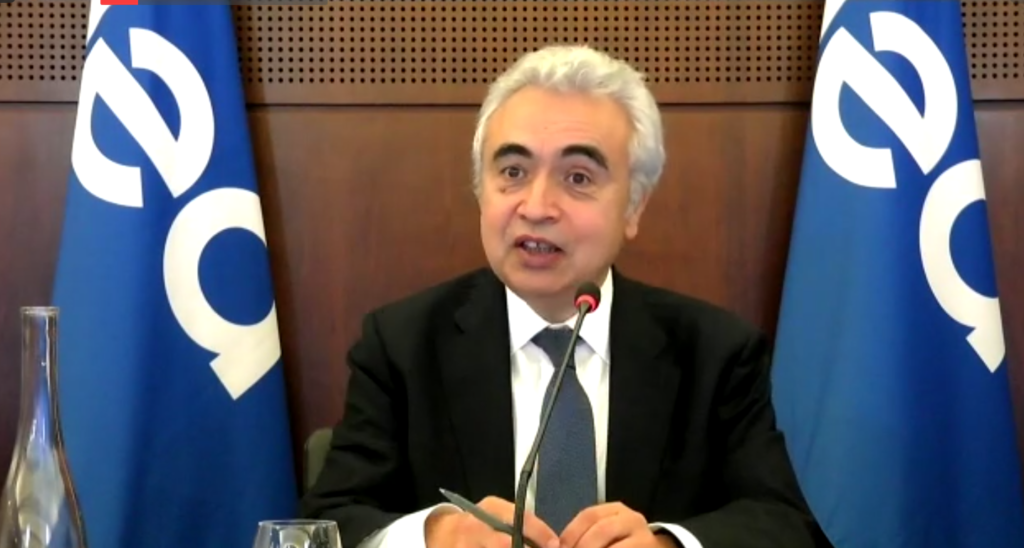RIO DE JANEIRO, BRAZIL – The International Energy Agency (IEA) warns that Europe must immediately prepare for a complete shutdown of Russian gas exports. In addition, the agency calls on governments to take measures to reduce demand. In addition, the IEA chief strongly recommends keeping aging nuclear power plants in operation.
Fatih Birol is the head of the IEA, and he has strong words for the countries of Europe. According to him, Russia’s decision to reduce gas supplies to European countries is only the preliminary stage before the complete gas export stop. According to Birol, Moscow is trying to misuse gas exports as a “bargaining chip” for war with Ukraine.
Read also: Check out our coverage on curated alternative narratives
“Europe should be prepared in case Russian gas is completely cut off,” he said. Birol said in an interview with the Financial Times.
“The closer we get to winter, the more we understand Russia’s intentions,” he said. “I think the cuts are aimed at avoiding Europe filling storage and increasing Russia’s influence in the winter months.”
IEA WARNED EARLY ON
Funding for the IEA comes primarily from OECD members. Last year, the IEA was one of the first official bodies to publicly accuse Russia of manipulating gas supplies to Europe.
Birol said emergency measures taken by European countries this week to reduce gas demand, such as firing up old coal-fired power plants, were justified given the scale of the crisis, despite concerns about rising carbon emissions.
IEA chief warns Europe to prepare for the shutdown of Russian gas exports. He recommends keeping nuclear power plants online.
He said the increase in coal-fired generation is “temporary” and will help maintain gas supplies for winter heating. Any additional CO₂ emissions from burning highly polluting coal would be offset by accelerating European plans to reduce dependence on imported fossil fuels and build renewable generation capacity, he added.
COUNTRIES’ MEASURES DON’T GO FAR ENOUGH
Birol warned, however, that the measures taken so far by European governments probably do not go far enough. He said countries now need to do everything they can to maintain stocks so they can be filled before the winter months.
“I believe there will be more and deeper demand measures [by governments in Europe] as winter approaches,” Birol said. He added that rationing of gas supplies remains a real possibility should Russia cut exports further.

FIRST STAGES OF EMERGENCY PLANS
After Germany, Austria, and the Netherlands, Sweden and Denmark also announced the first stage of contingency plans on Tuesday. But none of these national plans include rationing to maintain gas supplies.
According to the consulting firm ICIS, Europe has reduced its dependence on Russian gas from about 40 percent previously to about 20 percent since the war in Ukraine. But in the process, Europe has already exhausted most of its options for diversifying supplies, such as liquefied natural gas from the sea.
NUCLEAR POWER PLANTS
The IEA chief said countries should try to delay the shutdown of nuclear power plants slated for decommissioning. This will allow them to limit the amount of gas used to generate electricity.
Germany has been repeatedly criticized for its decision to continue shutting down its last nuclear power plants during the energy crisis. Birol did not name any individual country, but said all countries should consider “postponing decommissioning [of nuclear plants] as long as safety conditions are in place.”
Berlin has indicated that it considers the technical and safety hurdles to the continued operation of the plants too high.
COUNTRIES TO INVEST IN RENEWABLES
Birol’s comments came ahead of the release of a new IEA investment report on Wednesday, which warns that governments are not yet doing enough to encourage investment in renewable energy to curb demand for fossil fuels. Total energy investment is expected to rise 8 percent this year to US$2.4 billion, with growth driven by renewables and higher costs.
Last year, the IEA said the world did not need to invest in new oil and gas fields if governments wanted to meet their net-zero targets by 2050.
Birol said the world will continue to face dangerous volatility in oil and gas prices unless action is taken to significantly reduce fossil fuel consumption. “Unless governments take the helm and mobilize substantial resources for a clean energy transition, we will face extreme fluctuations in energy prices,” he said.

